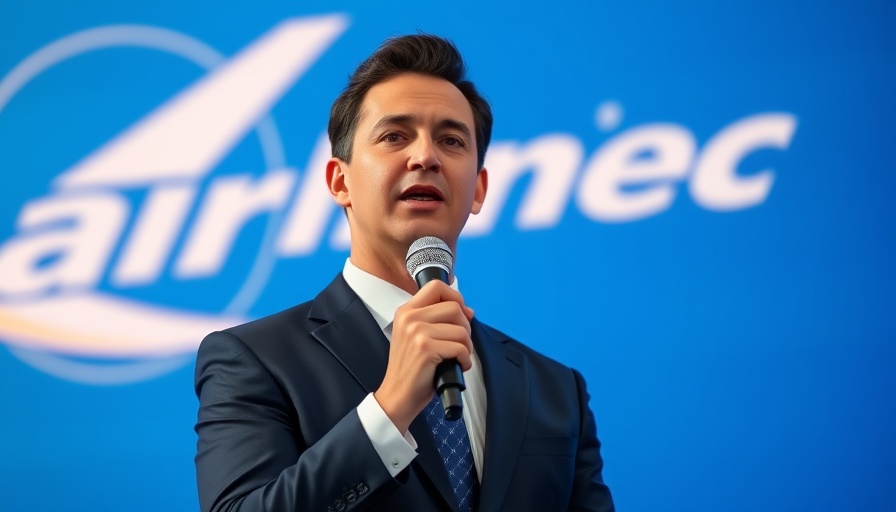
United Airlines CEO Declares Budget Airline Model 'Dead'
In a provocative statement at The Wall Street Journal's "Future of Everything" event, United Airlines CEO Scott Kirby criticized the budget airline model, claiming it is "dead." Kirby's candid remarks emphasized the negative effects of such a business model on customer satisfaction. He described it as a system built on tricking consumers with hidden fees and poor service—something he believes cannot sustain a successful airline long-term.
A Shift in Airline Dynamics: From Budget to Full-Service?
Kirby's comments resonate in a rapidly evolving economic landscape, where understanding consumer needs and offering transparency has become paramount. He criticized the low-cost carrier model for misleading customers with unexpected charges, stating, "The model was screw the customer.” According to Kirby, the nature of budget airlines has changed significantly—they once catered to price-sensitive travelers, but as they grew, they became dependent on repeat customers they could not reliably attract.
The JetBlue Partnership: A New Direction for United?
Kirby's critique came as United Airlines announced a partnership with JetBlue under the name "Blue Sky," which permits United to utilize slots for several daily flights from JFK's Terminal 6. This collaboration, subject to regulatory approval, aims to foster a more customer-centric approach. Kirby pointed out that JetBlue was founded on the principle of being a better airline for customers, contrasting sharply with older budget airlines that prioritize minimal costs over the traveler experience.
Future Trends: What This Means for Consumers
The airline industry is bracing for changes, and Kirby believes that this partnership could transform customer expectations and experiences moving forward. He hinted at a broader goal of enhancing United's frequent flyer program to provide more for customers in key regions like Boston. Despite financial pressures and a softening demand for air travel, United's approach suggests a commitment to moving away from the budget model's former practices.
Understanding the Economic Landscape for Airlines
The outlook for United Airlines reflects broader economic trends affecting the aviation sector. Reports of decreased international travel due to external pressures highlight the potential vulnerability of airlines. Kirby noted how geopolitical factors, including tariffs, might be influencing Canadian and international travelers’ plans. Consequently, understanding these economic dynamics is crucial for airlines to forecast demand and inform business strategies.
Budget Airlines vs. Full-Service: Customer Experience at Stake
Kirby's remarks underscore a critical conversation about the experience that airlines offer their customers. With budget airlines struggling to maintain customer loyalty amidst ongoing criticisms, businesses must rethink their strategies. The recent consumer sentiment trend suggests that passengers are willing to pay slightly more for a seamless and transparent travel experience—a factor that can drive long-term growth for airlines able to pivot effectively.
What Lies Ahead for Travelers and Airlines
Will budget airlines continue to lose market share to full-service carriers like United Airlines in the coming years? Kirby seems to think so. By adopting a consumer-first mentality, United is positioning itself to capitalize on changing market trends and consumer preferences. As airlines face future uncertainties, particularly with economic shifts and evolving customer expectations, they may be forced to adapt their business models or risk becoming obsolete.
Final Thoughts: A Call to Action for Consumers
In light of Kirby's comments and the recent developments in the airline industry, consumers should remain informed and expect better from airlines. Transparency, customer satisfaction, and fair pricing should be the metric of success for carriers moving forward. As the industry continues to evolve, travelers have a unique opportunity to demand better services that prioritize their needs. Many factors can easily shift the airline landscape, but by prioritizing customer experience, airlines can ensure their relevance—and perhaps their survival—in an increasingly competitive market.
 Add Row
Add Row  Add
Add 




 Add Row
Add Row  Add
Add 

Write A Comment